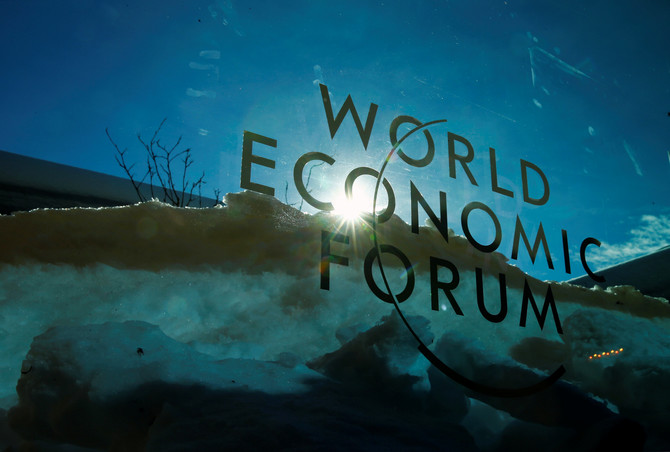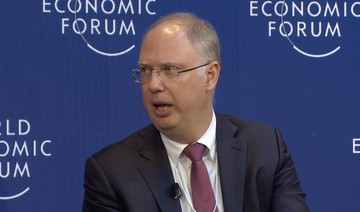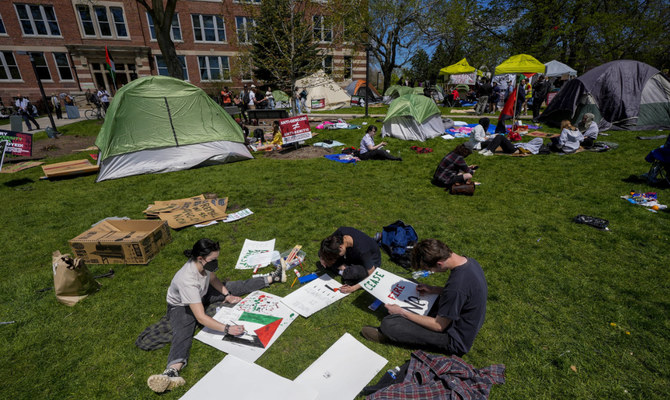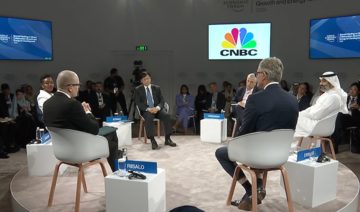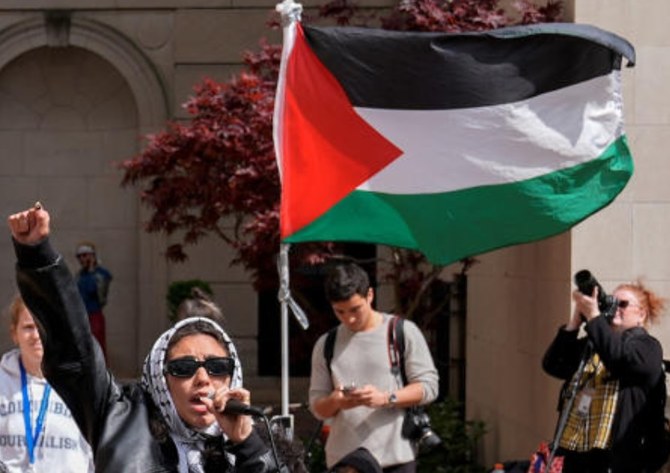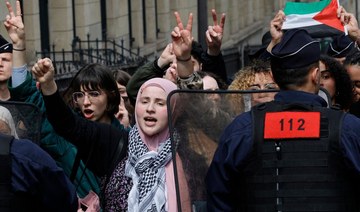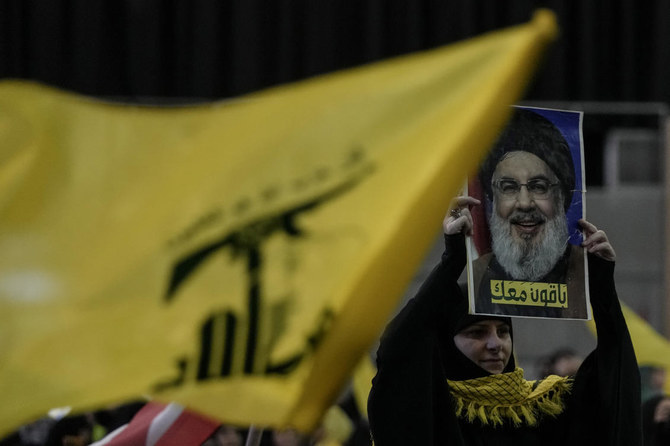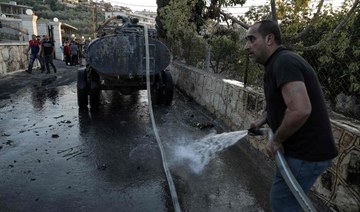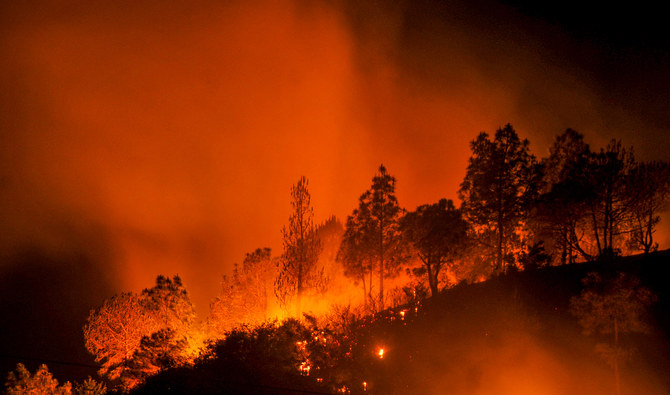DAVOS: The third day of panels and addresses is taking place in Davos, Switzerland on Thursday. Follow Arab News' live coverage below...
17.05 — Jacek Czaputowicz also said that the JCPOA has had a positive impact and the US decided to withdraw from it. He added that the Iran issue would be discussed in Warsaw at the upcoming meeting in February.
16.55 — Poland fears Russian aggressive policy, and it wants more US deployment said Polish Minister of Foreign Affairs Jacek Czaputowicz.
16.49 — “NATO is the strongest military alliance in the world and is an alliance of values,” the German Federal Minister of Defence Ursula von der Leyen said.
16.45 — Europe and the US are of common values, and the transatlantic alliance is repairable said former US Secretary of State John Kerry.
16.40 — “Our message to the US is that NATO is improving, and European allies are stepping up,” said the Secretary-General of NATO Jens Stoltenberg.
16.30 — Speakers discuss whether the transatlantic rift set to widen.
15.12 — “We have a consumer driven economy and consumers don’t have money in their pockets,” the Secretary-Treasurer and Chief Financial Officer of the American Federation of Labor and Congress of Industrial Organizations (AFL-CIO) Elizabeth H. Shuler said.
15.10 — Rubenstein said that US President Donald Trump communicates in ways that are different to the way presidents have communicated in the past, and that tweeting is a “very effective way to get your message out.” He added that Trump will get blamed more than he will like if the shutdown doesn't end soon.
15.05 — The US has not had a Shutdown for this long. If the situation is not resolved soon, “this will really impair the economy of the US,” Co-Founder and Co-Executive Chairman of the Carlyle Group David M. Rubenstein said.
15.00 — The future of America’s place in the world economic system is discussed.
14.56 — On his relationship with US President Donald Trump, Ghani said that Trump is engaging and that their relationship is excellent.
14.45 — Afghanistan wants engagement with Pakistan and Afghanistan wants a removal of the shadow of violence, Ghani commented.
14.40 — The long term course for the country should be democratic, said Ghani. Afghanistan is most suited to democratic governments, and “our culture is one of equality,” he added.
14.35 — Afghanistan is turning a corner and Afghan women now have a voice of their own, the President of Afghanistan Mohammad Ashraf Ghani said.

14.30 — The President of Afghanistan Mohammad Ashraf Ghani has a conversation with CNN’s Fareed Zakaria.
14.28 — Speaking earlier in a special address, UN Secretary General Antonio Guterres, appealed for dialogue to stop Venezuela's political crisis spiralling out of control. He also warned that the world is "losing the race" against climate change and that the relationship between the three most important global powers, Russia, the US and China, "has never been as dysfunctional as it is today."
13.20 — We hope that the chief executive of Dubai-based Majid Al Futtaim (MAF) Alain Bejjani packed his snow shoes (read Frank Kane’s interview with him here)
Wondering how I’m going to get to our next meeting ⛷ ❄ #WEF19 pic.twitter.com/FkMtC3kWZI
— Alain Bejjani (@alainbejjani) January 24, 2019
12.53 — We want to build a story of hope in the Arab world and we want to be a role model, said the Saudi Minister of Economy and Planning Mohammad Al-Tuwaijri.
12.52 — Saudi Arabia's oil business is the best in the world and the Kingdom is fully committed to the Paris Agreement, Al-Tuwaijri said.
12.49 — Talking about Saudi Arabia’s relationship with India, Al-Tuwaijri said that what will prevail is “credibility and sustainabilty”, and that the Kingdom has a great relationship with India.
12.45 — Saudi Arabia celebrated two Japanese banks opening in the Kingdom, the Saudi Minister of Economy and Planning Mohammad Al-Tuwaijri said.

12.40 — Arab countries have been a reliable source of oil supply despite the conflicts in the region, the Chairman of the Indian Oil Corporation Ltd Sanjiv Singh said.
12.35 — Saudi Arabia and Abu Dhabi are partnering with India in a huge oil refinery project, the Chairman of Indian Oil Corporation Ltd Sanjiv Singh said.
12.26 — The Middle East as a power house can look at investment opportunities in Asia, the Saudi Minister of Economy and Planning Mohammad Al-Tuwaijri said. He added that the Kingdom has identified 50 opportunities in South Korea.
12.10 — Saudi Arabia and Abu Dhabi are partnering with India in a huge oil refinery project, the Chairman of the Indian Oil Corporation Ltd Sanjiv Singh said at the forum.
12.00 — This session will discuss relationships between the Middle East and Asia. Speakers include the Saudi Minister of Economy and Planning Mohammad Al-Tuwaijri, the Deputy Prime Minister for Economic Affairs and Minister of Finance Fuad Hussein, the Group Chairman and CEO of DP World Sultan Ahmed bin Sulayem, and the Chairman of Indian Oil Corporation Ltd Sanjiv Singh.
10.45 — Ghannouchi told the forum that Arabs need more freedom as they “don't have enough of it.” He added that opportunities need to be created for the youth, and called upon bussiness leaders to invest in Arab countries.
10.15 — The leader of the Tunisian Ennahda Party Rached Ghannouchi said that he thinks that there are universal standards for democracy and freedom. He added that the Arab world has reached a boiling point, and “needs reform.”
10.00 — Jordan's Minister of Foreign Affairs and Expatriates Ayman Al-Safadi told the forum that Arab countries are looking at an “Arab role that will bring the Syrian crisis to an end.” He added that they needed to play a major role in making Syria immune to conflicting international agendas.
9:45 — The Middle East security outlook is being discussed — check out the live video below. Speakers include Ayman Al-Safadi, Jordan’s minister of foreign affairs and expatriates; Mohamed Ali Alhakim, Iraq’s minister of foreign affairs; Rached Ghannouchi, leader of Tunisia’s Ennahda Party; and Majid Jafar, CEO of Crescent Petroleum.
8:15 — Saudi Arabia’s ambitious reform plans were discussed in an early Davos panel, with speakers including Minister of Finance Mohammed Al-Jadaan, Minister of Economy and Planning Mohammad Al-Tuwaijri, and Saudi Stock Exchange Chairperson Sarah Al-Suhaimi.
LIVE: #Saudi Minister of Finance Mohammed Al-Jadaan: The government has restructured the intelligence service as a result of the Khashoggi incident @wef #wef19 #Davos https://t.co/QX74EHwU04 pic.twitter.com/FfI2tlDjHD
— Arab News (@arabnews) January 24, 2019
LIVE: Chairperson of the Board of Directors, #Saudi Stock Exchange, Sarah Al-Suhaimi: WEF reports have reflected the positive changes in #SaudiArabia that have improved the country's ranking in terms of investment@wef #wef19 #Davos https://t.co/QX74EHwU04 pic.twitter.com/JPvoUjbKDW
— Arab News (@arabnews) January 24, 2019
8:00 — Good morning from a chilly Davos. The Middle East is a key theme at the forum today, with an early morning discussion on the future of Saudi Arabia, the region's security outlook set to come under the microscope, and a discussion with Omar Al Razzaz, Prime Minister of Jordan. Keep up to date with our live blog.




